 originally posted on my JJBA blog
originally posted on my JJBA blog
 originally posted on my JJBA blog
originally posted on my JJBA blog
i've been in a certain kind of state lately that i'm not comfortable elaborating on here, but within this, i've been spending a lot of time with escaflowne. which in turn makes me think about my own art, since it's a mainstay i wouldn't've thought to cite as a personal catalyst before revisiting it, and now it's so obvious an origin point of elements i didn't know how to think about at the time. i began this post trying to summarise the way i engage with the fiction i really enjoy, like, the divide between enjoying its presentation at face value and enjoying pulling it apart to see how it works. it's branched out into thoughts on art and storytelling generally. it's easier for me to talk about visual art, but the way i construct stories, where my focus lies, is in there too.
contains spoilers for escaflowne and jjba. and i guess metal gear?
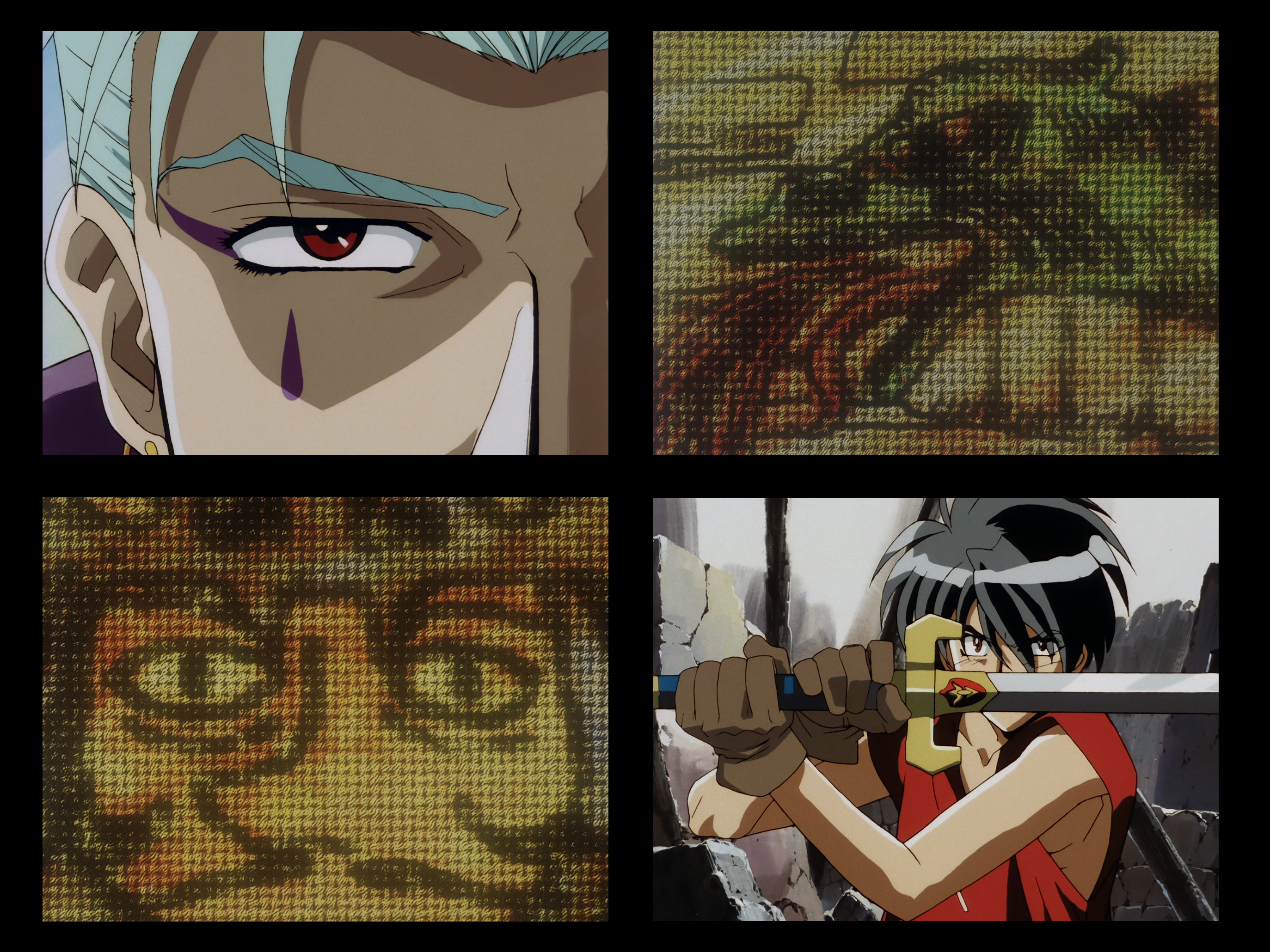
i don't know what the first film i saw in theatres was, but the one i remember bawling my eyes out for was DRAGONHEART (1996.) completely bereft. laid right down on the floor at home, hopeless. totally pathetic. unsurprising to at least my partner, i was always into dragons (well before seeing the film; i was also deeply into THE NEVERENDING STORY.) i'm going off the dome here but dragons seemed to occupy the role of christlike martyr, misunderstood to the point of, in many stories, being wiped out. and of course, equally as symbolic of the devil. a thing put on this earth just to beat, a perpetual obstacle. the role of the dragon as well as the role of the person picked by their society to slay the dragon seemed so so unfair and so tragic to me. i've sorta moved away from dragons-as-dragons and toward dragons-as-people.
i don't consider myself very analytical, not very good with metaphor, unfamiliar with the source of most tropes, don't care/have a big aversion to joseph campbell. i like when a story references itself. i like causal loops and temporal paradox. most of all, i love melodrama. ever since i was young, i craved in kids films something that i only rarely found, a type of pain and catharsis belonging to no one genre in particular. i needed to be brought to my knees, gutted, not by senseless sadness, but sensual sadness. when emotional arcs hit, mechanics are less of a concern for me. i mean, i don't like thoughtless crap. i admire consideration and i love art which seeks to consume you, to share a body with you, briefly, to remind you what it is to feel a feeling. not in literal form (and melodrama is usually taken to mean “flat”, lacking subtlety) but a fantastical representation of an ache deeply felt— and in that way it becomes more real than anything.
the desperate dejection and pathos of the father in INTO THE WEST.
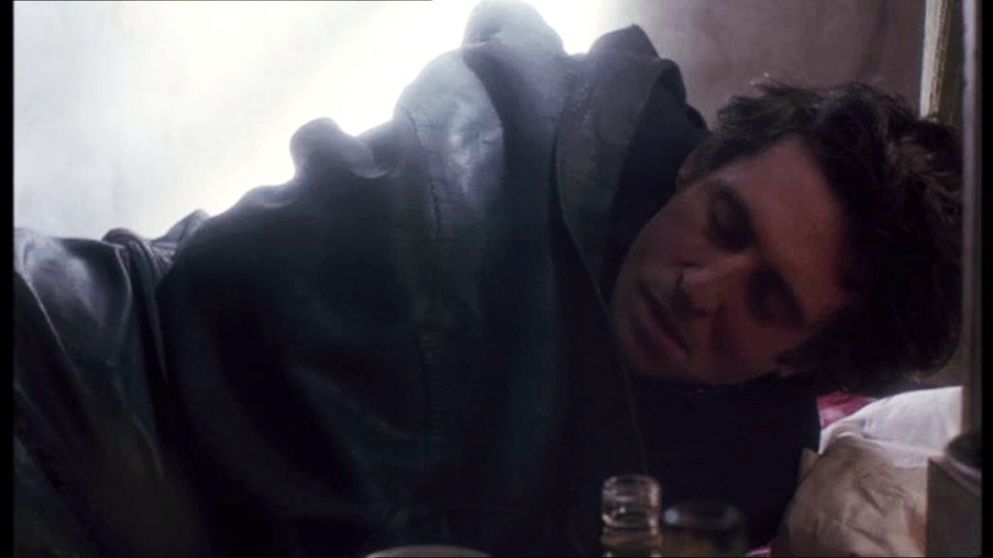
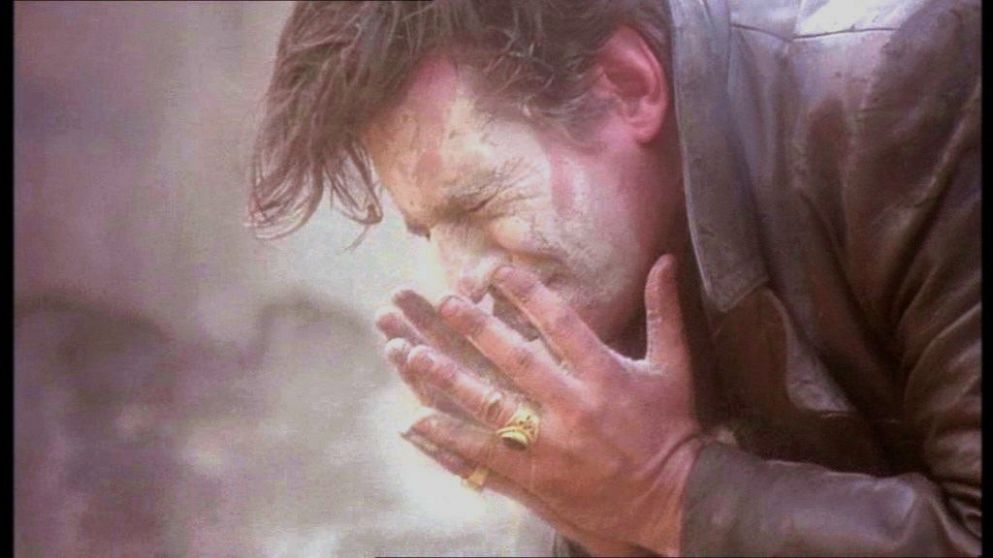
INTO THE WEST is a western set in an irish context, and it's a kids' film, one of the first films i can really remember watching as a child, which portrays abject poverty, displacement, a father beaten and arrested by the gardaí.
it's the hard and physical, breathless, and then suddenly floating, out of body but anchored, by one straining handhold, at the end of HEAT.
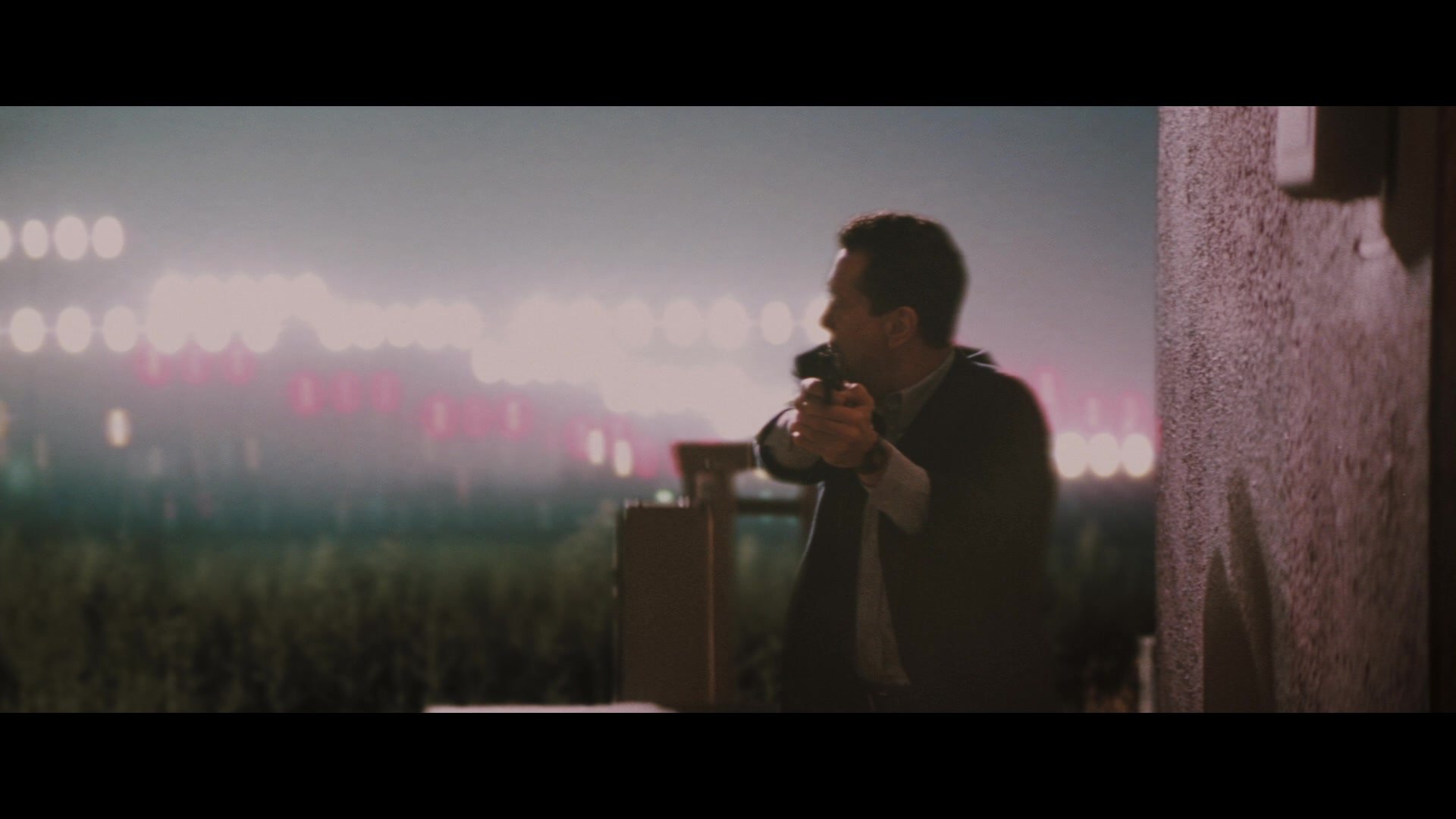
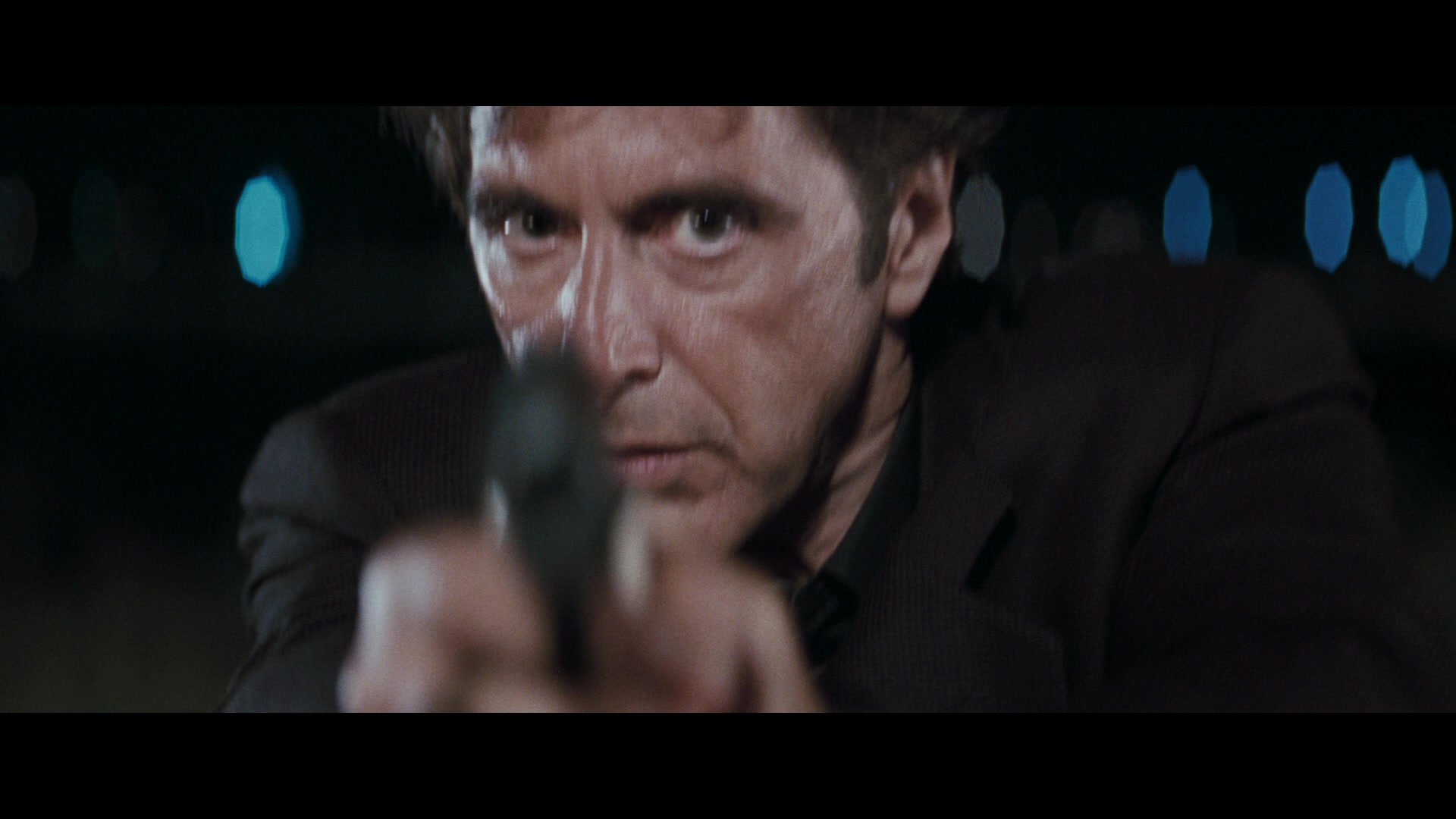
THE FALL is a beautiful film, lovingly made, its visuals maximal yet sleekly, fluidly designed along the lines of THE COLOUR OF POMEGRANATES and EL TOPO. but it's not the beauty that keeps it relevant to me, although i can recognise it. the beauty would fail to capture without this:
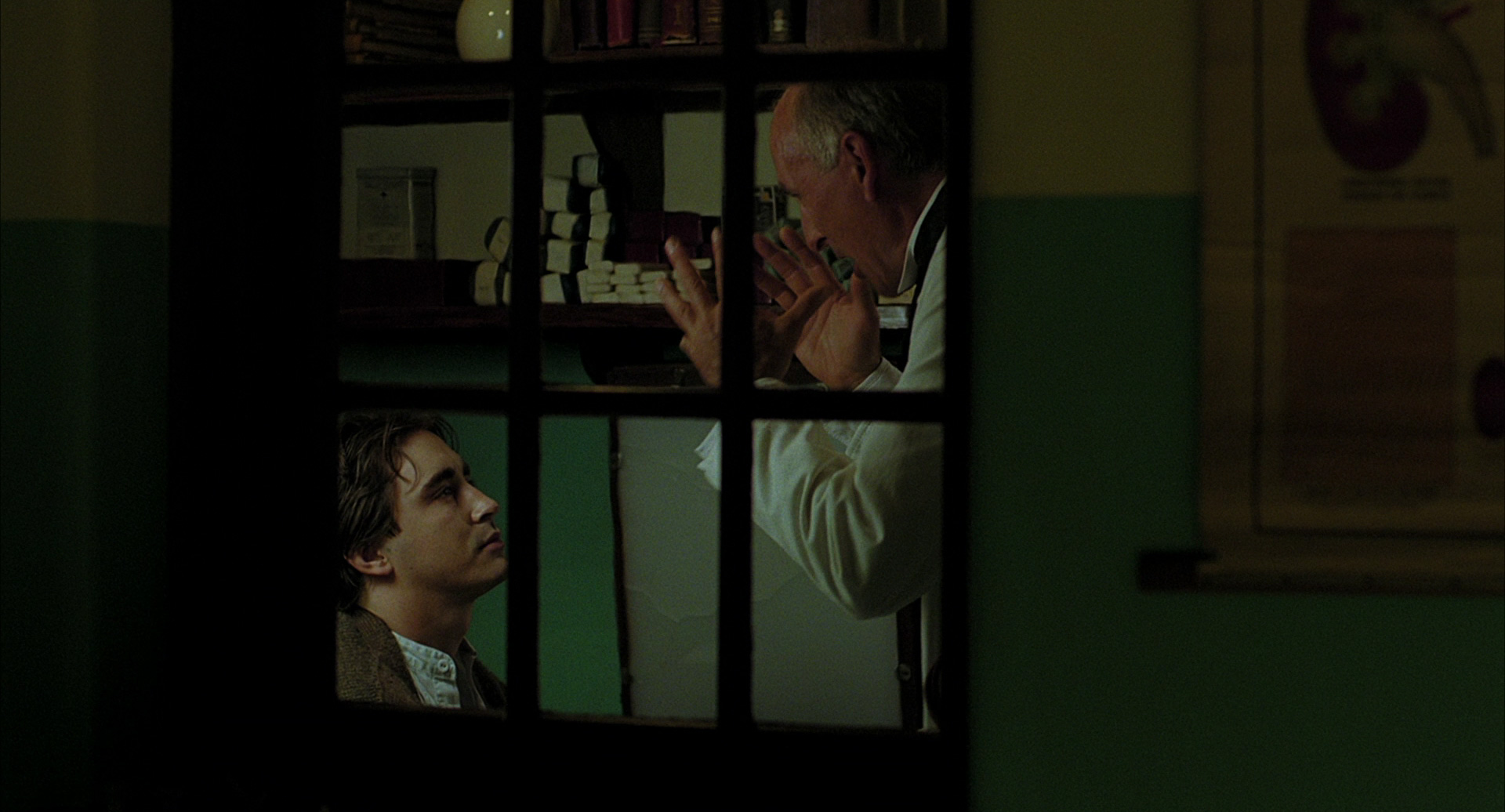
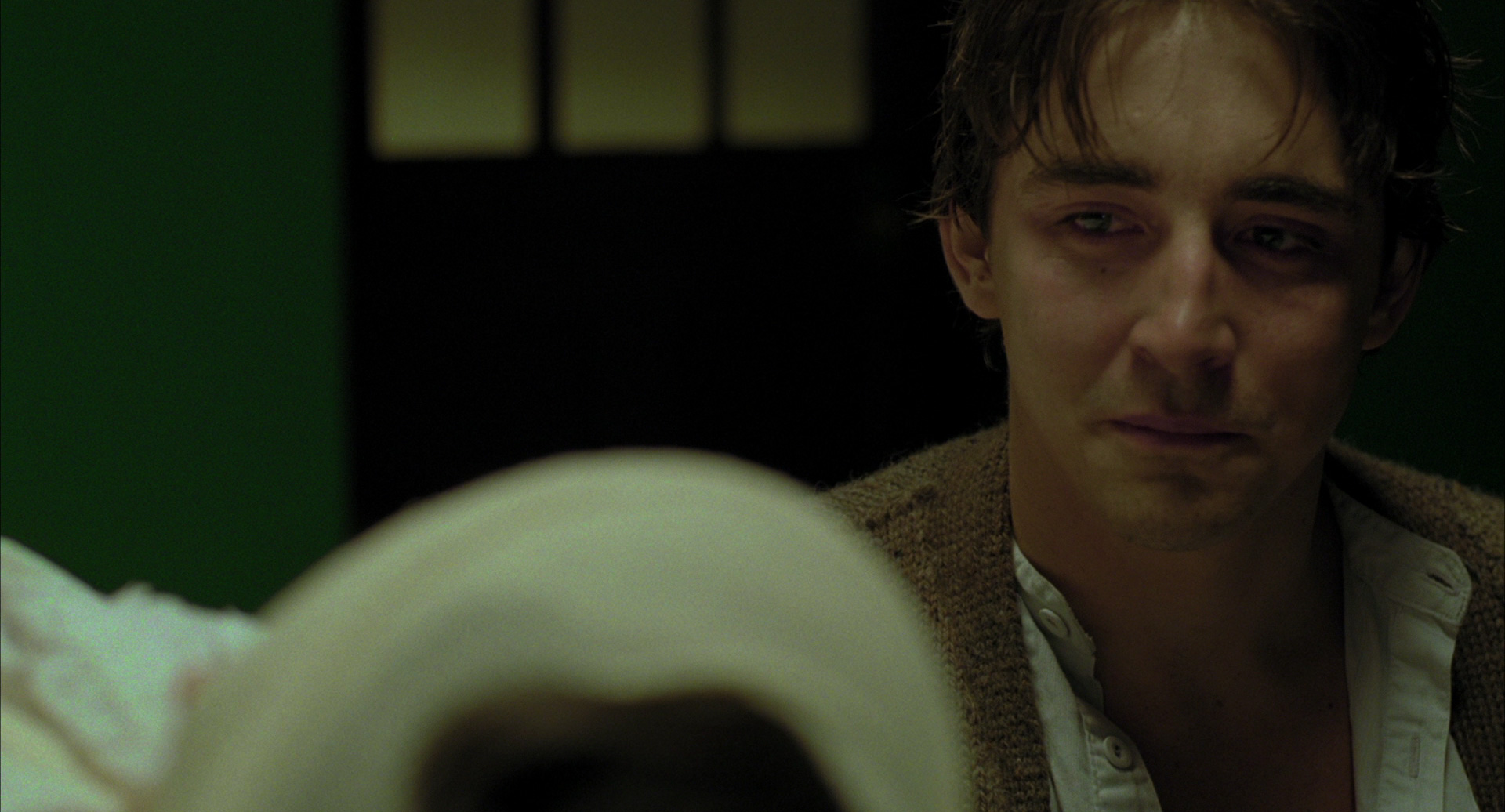
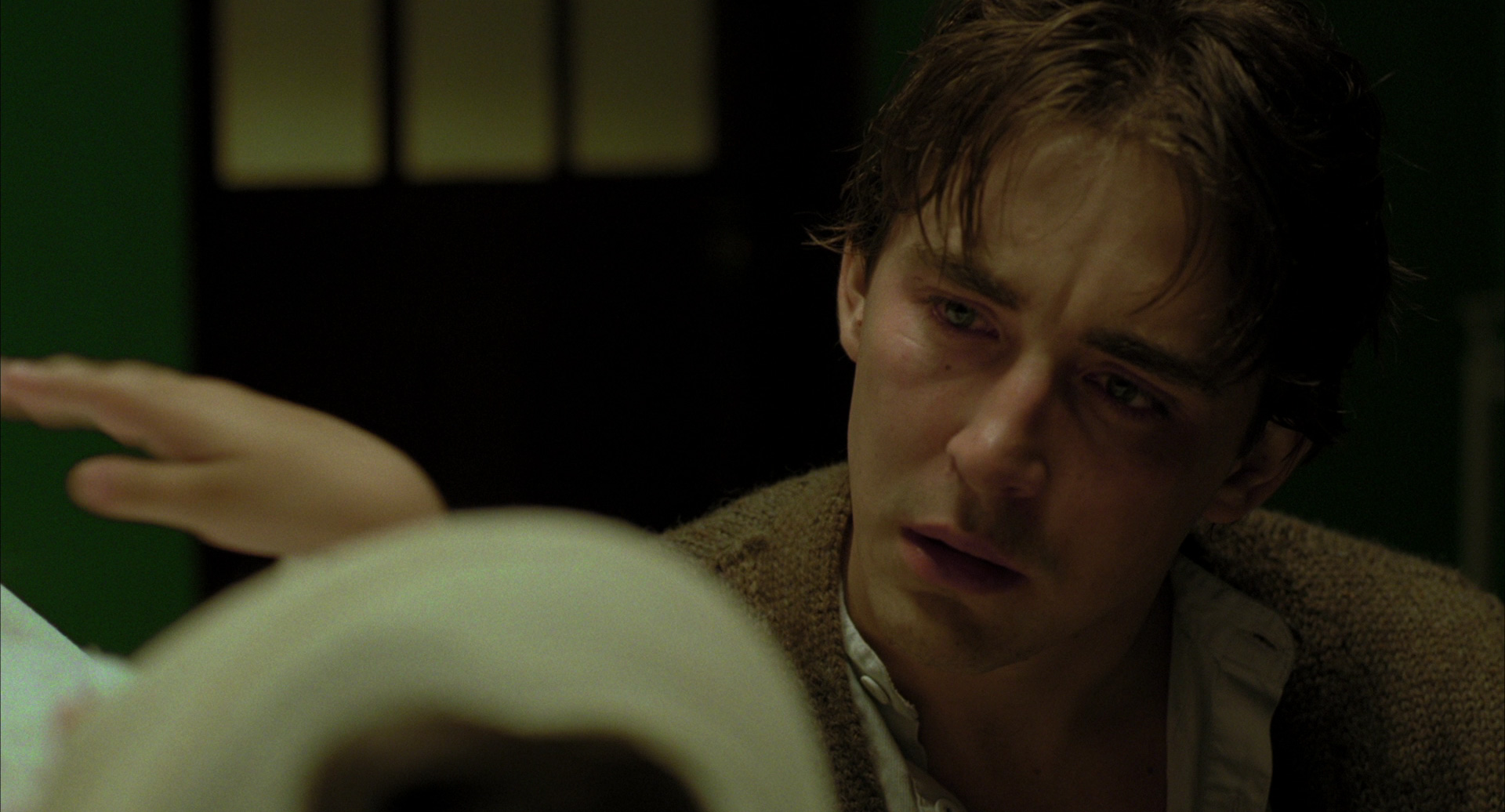
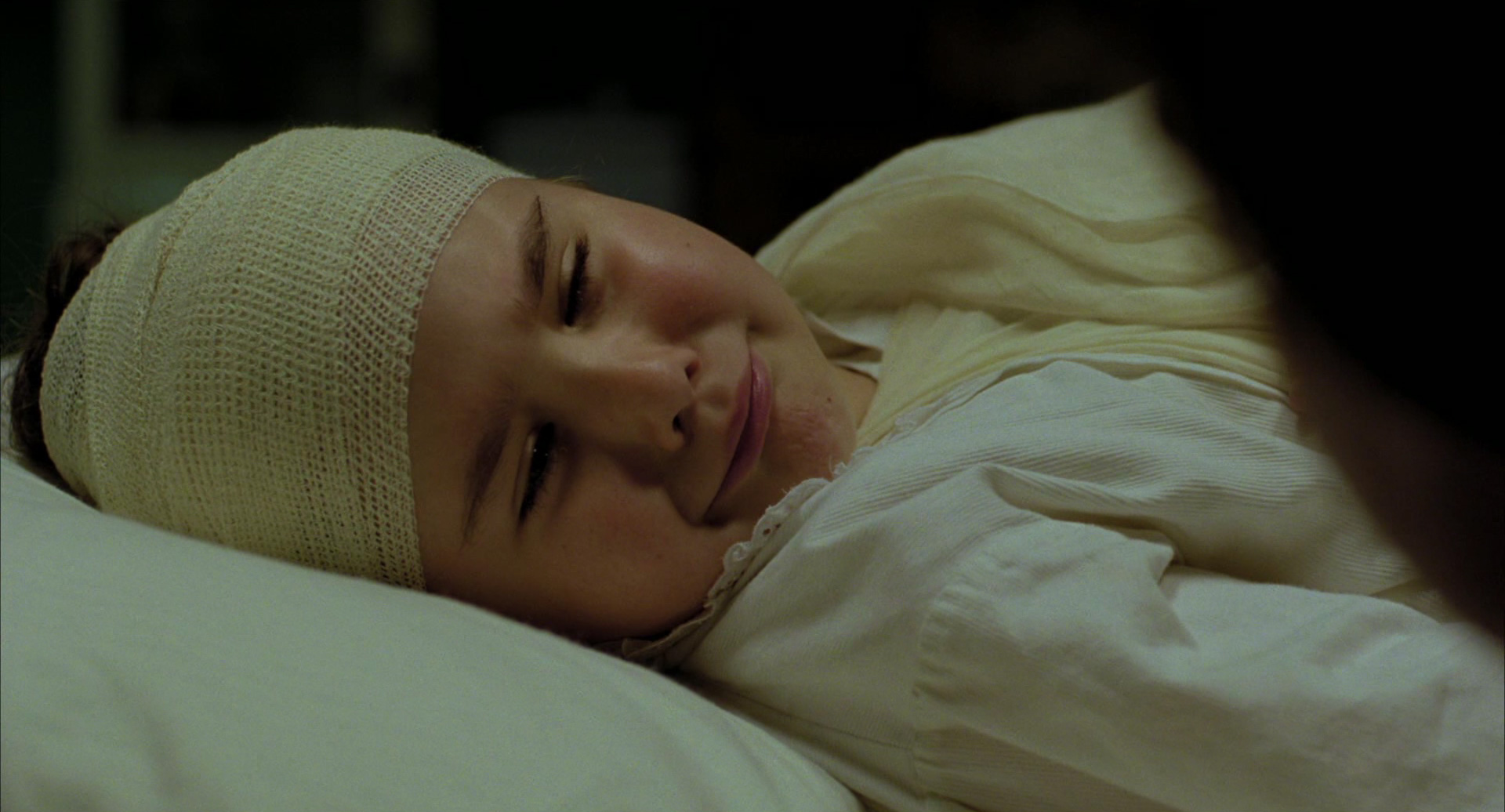
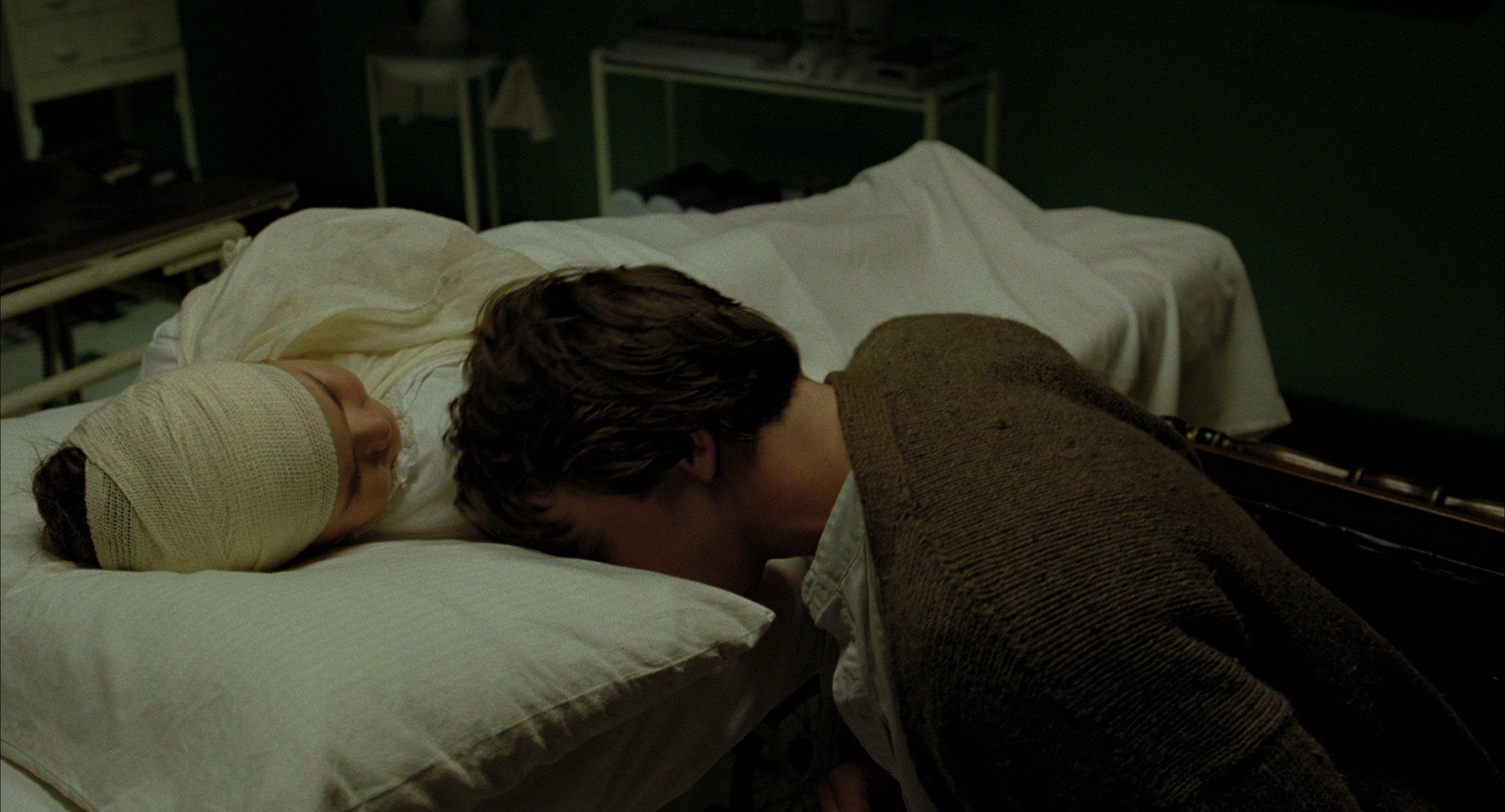
moving on... i honestly don't know why, but i've never been much for shipping. while i'm here i'll hazard a guess, though. most of the time, with the stuff i really love, i don't venture into what it could be, but remain at what/why it is. i struggle to overcome what feels like distraction compared to the satisfaction i get from the whole. i don’t enjoy Ace Attorney through the lens of phoenix/edgeworth, because that romantic relationship to me loses all significance divorced from its ensemble act. their canon (and implications therein) friendship (along with larry) is so riveting, so bullshit funny, that i want to follow that thread to its many conclusions. if that makes me sound like a joyless crank, um… well, i’m not.
my favourite JJBA pair is an outlier. and a personal delusion yes, but i think i'm better at explaining it now than ever before. i don't think you need to justify the shit you're into, and i'm not about to. what i am, is curious about why i do the things i do, so here we are. if you want to know/see more of what i'm talking about, go here. all of this is covered by the manga also, but the 1990s OVA adaptation is my favourite representation of these chapters.
the reason why it struck me the way that it did is because it’s based on a moment in JJBA which is then repeated with other characters going forward— a turning point between two people (this is key to it also, that it suddenly turns intimate) which expands the story right out from under you, a painful rug-pull, a literary move. it’s not solely about the plot expanding— the plot of stardust crusaders remains the same— but the entire work expands because the author has suddenly revealed that there was always more going on, and to stay on your toes. shaking your foundation. everything is the same and everything has begun to change. that’s what grips me about it, that’s why i find it so romantic, and i mean that in a classical sense too.
going back to Ace Attorney, most of those pivotal turning point moments are expressed/developed by the story of/through the familial bond between maya and phoenix. everyone is connected through this. because that is/coincides with the actual plot, i don’t really find myself inventing new “what if?” relationships, because i’m so satisfied by the presentation of the facts.
i think the storyline of MGS3: Snake Eater falls into this too. you know what your mission is, and can expect what will happen, but the heartbreak of finally fulfilling what it promises feels completely new once you reach it. the Boss is like the peak example of characters who are aware of their narrative, aware of the role they’re made to play by forces beyond their control, and despite being correct, must suffer for it. haha... in keeping with the theme (Escaflowne and stuff i like) it's sorta interesting how this is both christlike but also, despite being a symbol of the devil in western canon, dragonlike. misunderstood, misattributed, marginalised, rewritten and revised. a martyr with no followers. the romanticism of stone butch tragedy. if not alone, then apart.
in my own work i tend to call this The (trans) Male Cassandra, because that’s the type of guy i keep writing, almost like i have a vested interest in doing so. the guys identified by the people around them as A Problem, because even if they're correct, it's not what anyone wants to hear, and their way of expressing themselves is difficult and off-putting. guys who suck shit and are hard to love, but also make great sacrifices, largely unseen or thankless. the gift of prophecy brings no reward, only pain. some do all they can to dull the sight.
it’s in this one way that i think characters like n'doul and jotaro are similar, and that’s not only rare, but the way it’s presented is rare too. especially for a story like stardust crusaders. but from there on, because of it being in stardust crusaders, i can see the future more clearly, and i can hold the story to a higher standard, because it’s also holding me as a reader to a higher standard.
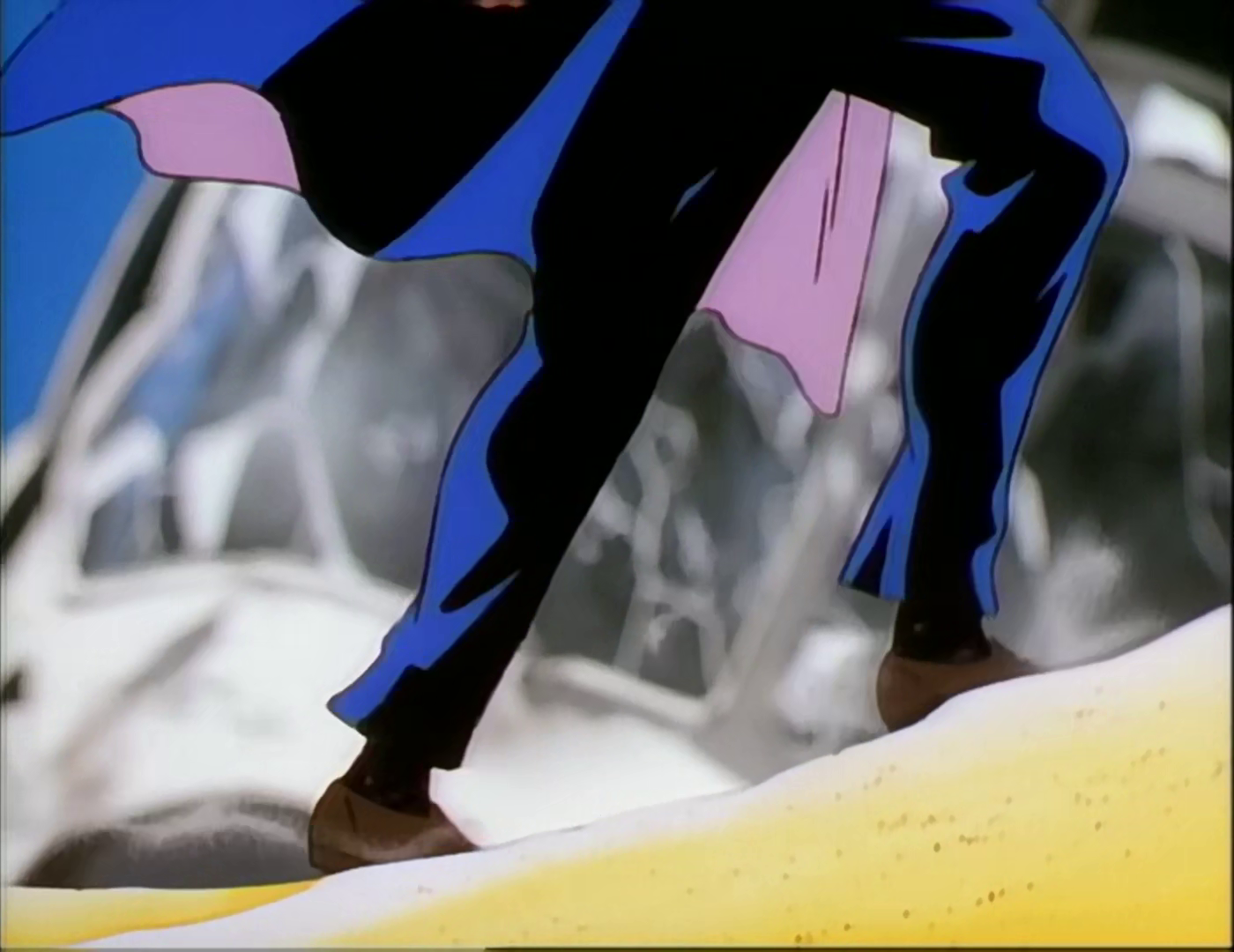
spoiler | the way n'doul reacts to jotaro, what he says about him, admires about him, laments to him, tells us more about how we should see jotaro. the way jotaro reacts to him does the same thing. in this singular fight, first jotaro is freaked the fuck out, then they’re both having fun and mutual respect is earned and acted upon. it's only after n'doul's been humanised as charismatic that we see him become scared.
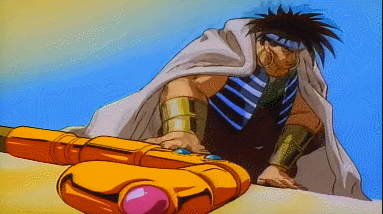
spoilers continued | when we realise jotaro means to keep n'doul alive, the reader is abruptly put in a position of knowing what’s about to come before jotaro does. he should, but he doesn’t, because, for this one moment, he thought something else was possible. he has seen himself as being in control, he's powerful, he's mowed down their enemies. now that control is taken away. even the type of death is different (suicide) and jotaro’s reaction (shock/horror.) we saw rules, we suddenly see exceptions to rules, we knew what to expect, suddenly those expectations are changed— and the immediate tragedy of possibility denied. watching him try to do something we know isn’t going to work out also serves to make him seem younger, and putting this in sometime before the fight with dio is a good reminder that he’s human. but n'doul's loyalty to dio, paired with what he says to/about jotaro (implying he thinks jotaro might be able to beat dio) also puts jotaro on the same footing as dio at the very same time as he, in this moment, is a kid. and maybe having the ability to choose who lives and dies is a burden, one which will become heavier from part 3 on.
bigger spoiler | it’s a piece of what compels me about folken, as well as what i find bottomlessly heartbreaking about him. death seems to be a necessary component of the role of the seer/cassandra, but escaflowne shows us how desperate and dire the escape from fear and violence is. this being folken’s ultimate aim above all else (to free van from the cycle), and hitomi pleading with him saying if he dies, then van will be all alone… hitomi is telling me why it doesn’t make sense, and the story then sets it up such that it lacks even the paltry comfort of closeness, if not catharsis, for van. at that point in the story, i can’t help but find it cruel in a way i don’t find n'doul to be, or even the boss. cruelty is done to the boss in the storyline, the internal world is cruel to her. you can critique the “fridging” or whatever, but it isn’t a departure. it doesn’t unravel the story, it’s key to it, for all time. folken's death, even just emotionally, affects no change that wasn't already in motion. it has the symbols of meaning, but i find it a disappointing conclusion to a character with such depth, such longing, and such a multifaceted role, and i know the writers were capable of better, because i saw the evidence over and over. so yeah. sucks actually! okay critique done now. don't read this.
i was telling my partner that when it comes to something like Metal Gear or Ace Attorney, the quality of the thing imo speaks entirely for itself. if someone doesn’t like it, or focuses on only some minute aspect of it, or goes off on a mad one interpreting signs and symbols that imo aren’t there, the thing speaks for itself so loudly and plainly that any difference of opinion rolls right off my back.
then with JoJo’s Bizarre Adventure it’s similar, where i think araki’s career and evolution of maturity in his storytelling and contemplation speaks for itself too, but my experience in the fandom (going way back now) was of people who claimed to enjoy it admitting they neither read nor even watched it, and were in no way capable of or interested in taking it as a piece of art. instead it was something to consume through someone else’s summary, as fast as possible. which made having genuine conversations about it difficult when i’d try to talk about textual aspects of the series. conversations were dominated by moralising and headcanons. so compared to the above, i do feel more moved to defend it on that basis.
there’s a nasty habit of talking about hirohiko araki like he's a fucking slapdash idiot and that none of his choices have any internal coherence, which is plainly wrong, rude, anti-intellectual, and past a certain point, probably racist. the man has written books about his approach to writing manga and there’s decades worth of interviews for more. it may not appeal to everyone and you personally may not get what's going on but he thinks long and hard about what he does. but the game of telephone people play with JJBA in lieu of any sincerely felt relationship to it is a barrier i have a hard time talking through. so while it bothers me and i still try to talk it up, ultimately i have to shrug this off. we’re having two different conversations.
and then... with Escaflowne i feel like i have to defend her with a knife LOL.
escaflowne never lets the fantasy overtake the humans that drive the story. each character is made significant, a protagonist in their own life, despite the perspective being limited. like most mecha series, escaflowne is about the toll of violence and trauma, particularly its effect on young people. it honours relative, material experiences. there are hundreds more things i want to say about it, and i can't. telling you the basics of its plot won't tell you the most important things about it. also, when i describe it as being lifelike, or natural, i'm almost exclusively talking about its evocative portrayal of emotion. that's the melodrama. but there are also incredible interstitial movements and expressions that do have naturalistic subtlety, the kind that surprises, because for as much as anyone knows about the story, or just some idea of the tropes, you wouldn't expect that to be such a key element. i dunno, does that fall under 間? ma? i don't know enough about it to say, since the conversations tend to be dominated by its use in ghibli films, but if it means breathing room, if it means quiet scenes of inaction as contrast and relief, then escaflowne utilises this wonderfully. even being illiterate in these concepts, it speaks to my inclinations before i knew about it, and just serves to validate those instincts. (i think also this is an aspect of irish storytelling, which is cousin to magical realism.)
it seems like a huge chunk of people on earth are coming to escaflowne with either preconceived notions and expectations, or preconceived notions in the form of feelings crystalised at grade school age. the latter isn’t a criticism, it’s life, it happened to me. if your feelings crystalised simply but positively, i do believe it was for a reason; you felt something and couldn’t make heads or tails of it then. or you attributed it to something which then becomes something else later. it's worth finding out the ways you evolved, and see it fresh.
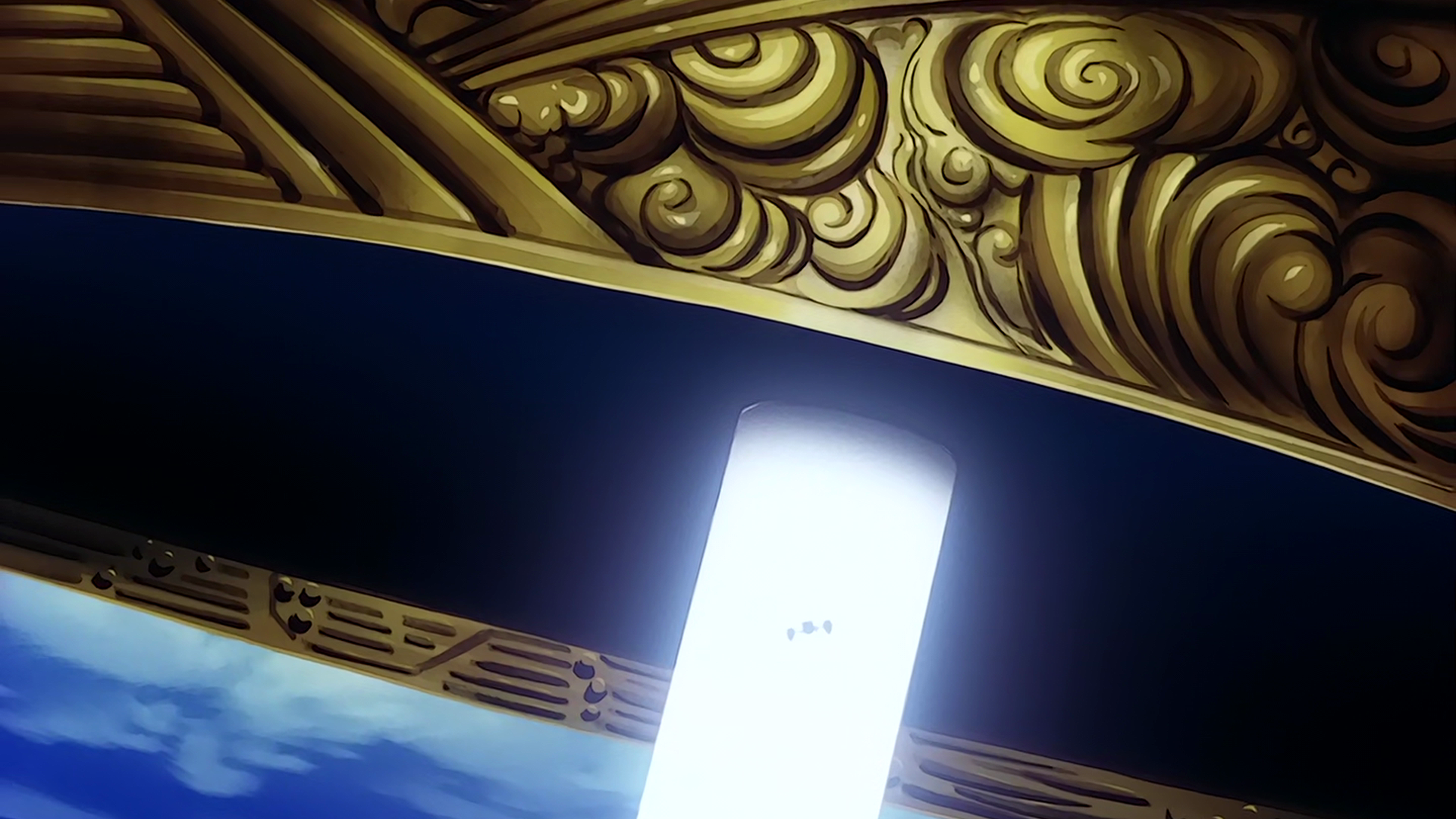
i’m not going to pretend there’s no alternative to liking escaflowne, lol, i understand disliking it or anything else. however, dislike shouldn’t preclude one from respecting it/taking it seriously. i talk about this later, but designating a piece of art— particularly from a time period in which art was funded, lol— valueless, especially art which is foreign to me, isn’t something i personally want to be caught doing.
preconception of any kind is hard to disentangle because it must be tested. i think it was like that for me, and now with my adult perspective i can really easily point to what about it stirred and stuck with me because i have a map of creative work from then to now which points to it. (particularly in writing, if not art, though i'm confident the film informed my sensibilities.) and i’m still surprised by many things i missed. even if emotionally they landed, conceptually they didn’t. which is why i really believe that in key respects it Is that deep.
i see people compare it to magic knight rayearth, but it’s simply the truth that escaflowne sought to accomplish different things than rayearth, intending it for a more mixed audience. rayearth’s narrative in the manga and anime is furibund in a way escaflowne isn’t. escaflowne’s masterful approach to pacing means episodes can fit a lot in them without being hectic— what frenzy there is, it’s sustained only within the scene for which it’s appropriate. but it doesn’t have the same bounce as rayearth. there’s breathing room. it differs structurally. escaflowne’s story is largely shown/told not only through character parallels, but scene parallels, done back to back in direct poetic contrast. everything is a foil. so, maybe i understand it’s only being compared in terms of genre, but in terms of genre, escaflowne defies shorthanding. and as time goes on, that’s more and more impressive to me. it isn't divided into two parts, shojo/shonen, it's a gestalt, and those are just marketing terms. they don't tell you much. the zeitgeist of “[IP] meets [IP] x [trope]” takes me out instantly. inability to summarise it concisely (without ignoring some key component) is to me a credit to its form, not a shortcoming. i want to see passion, not branding.
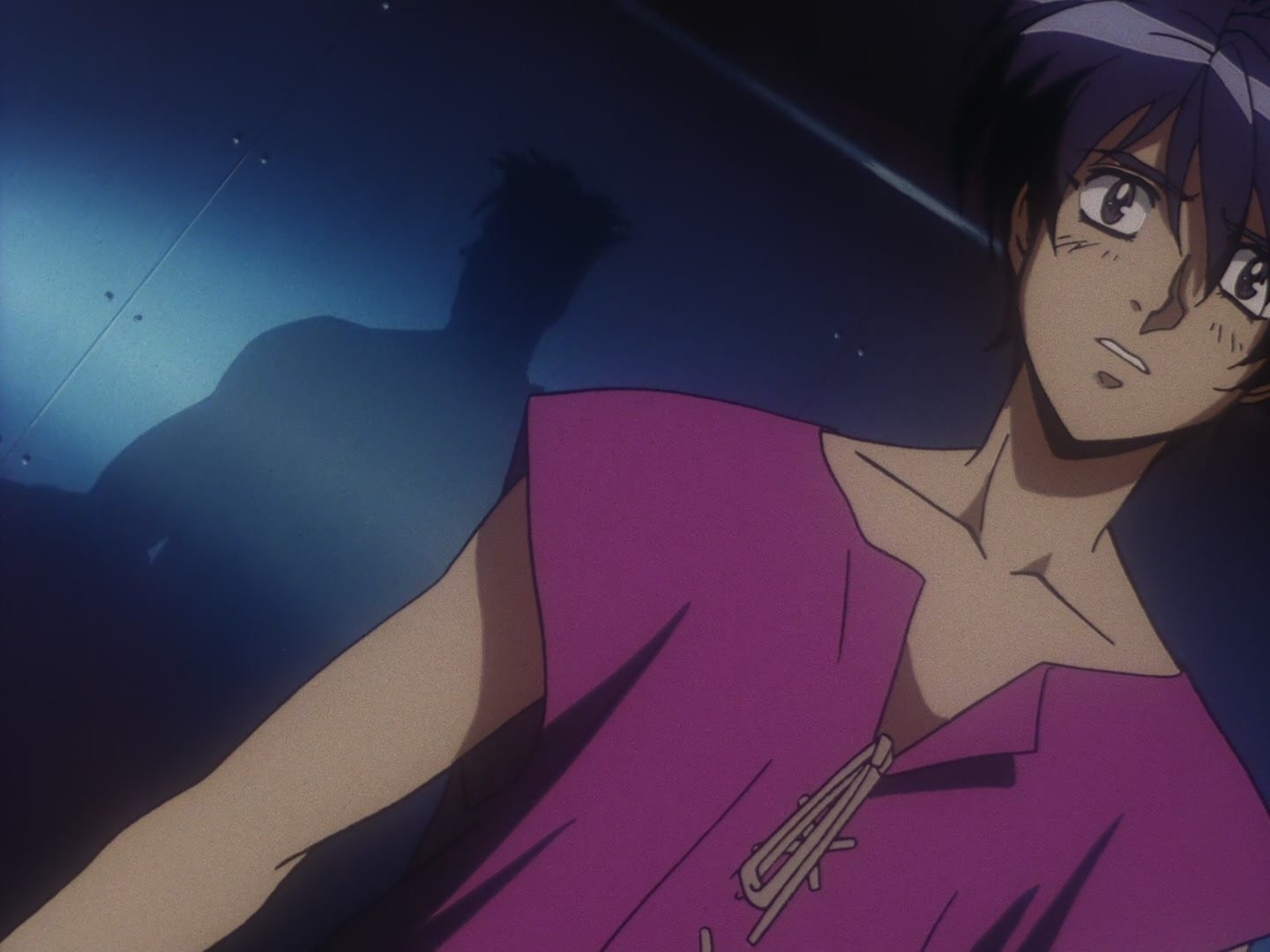
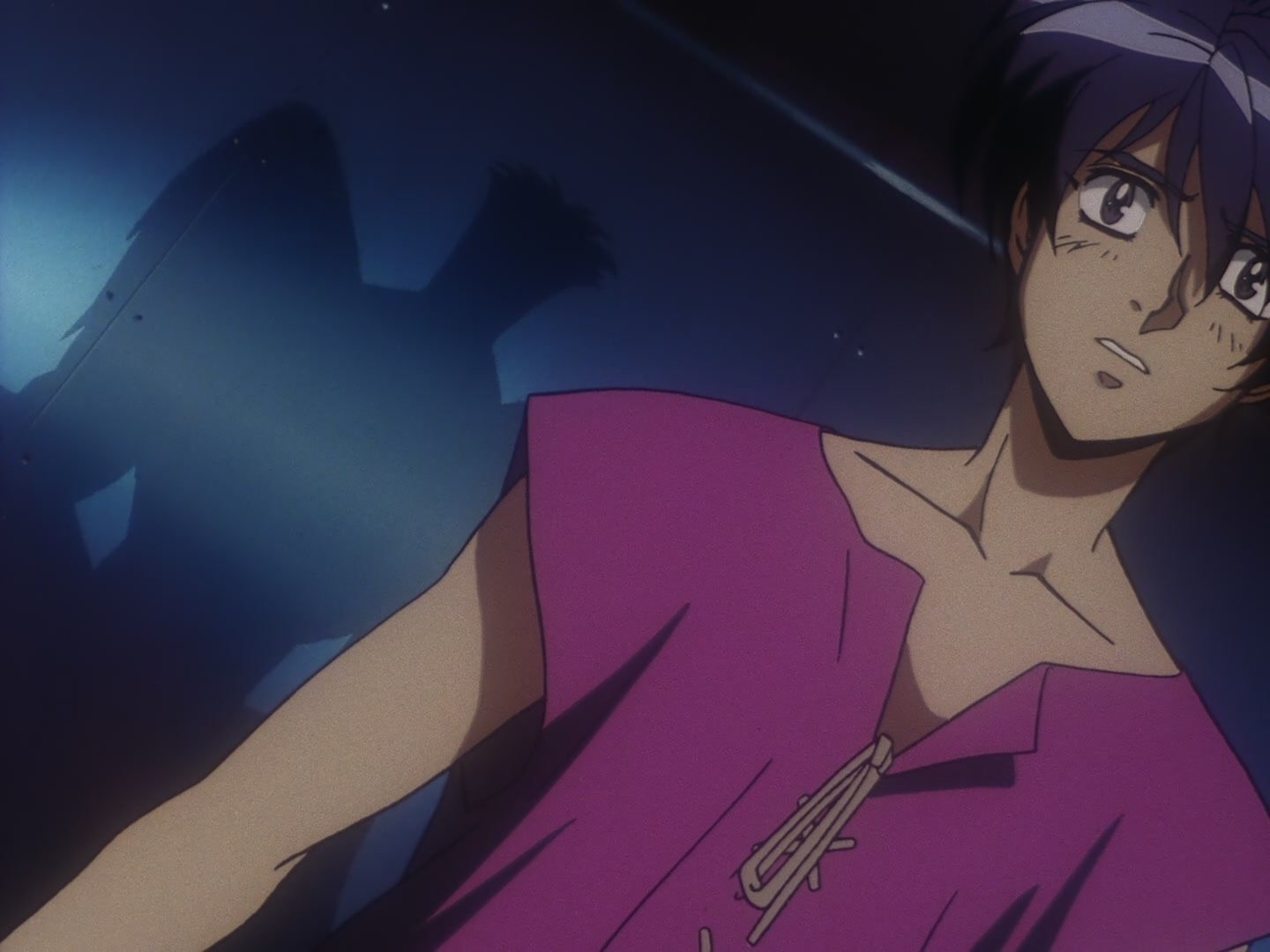
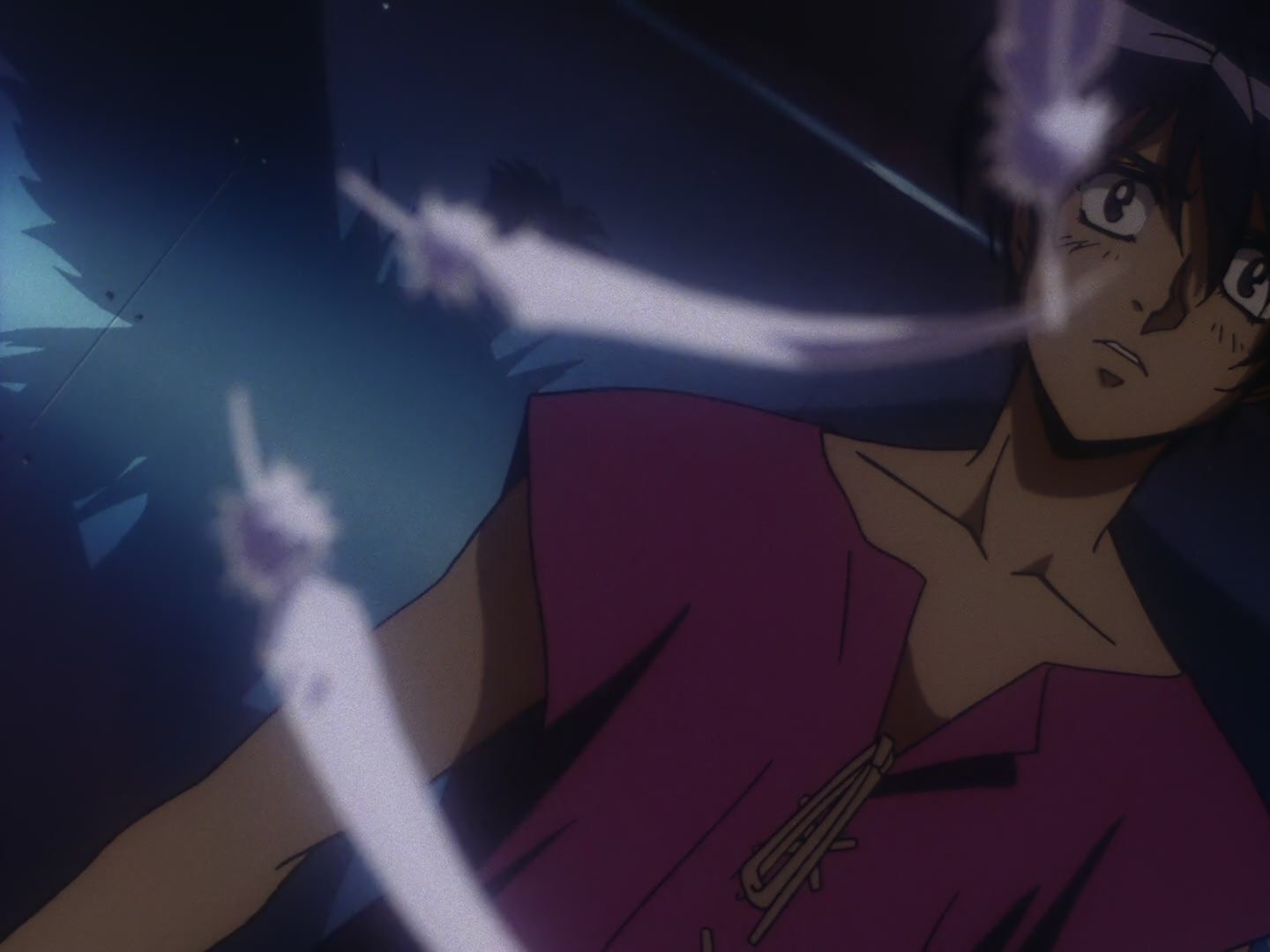
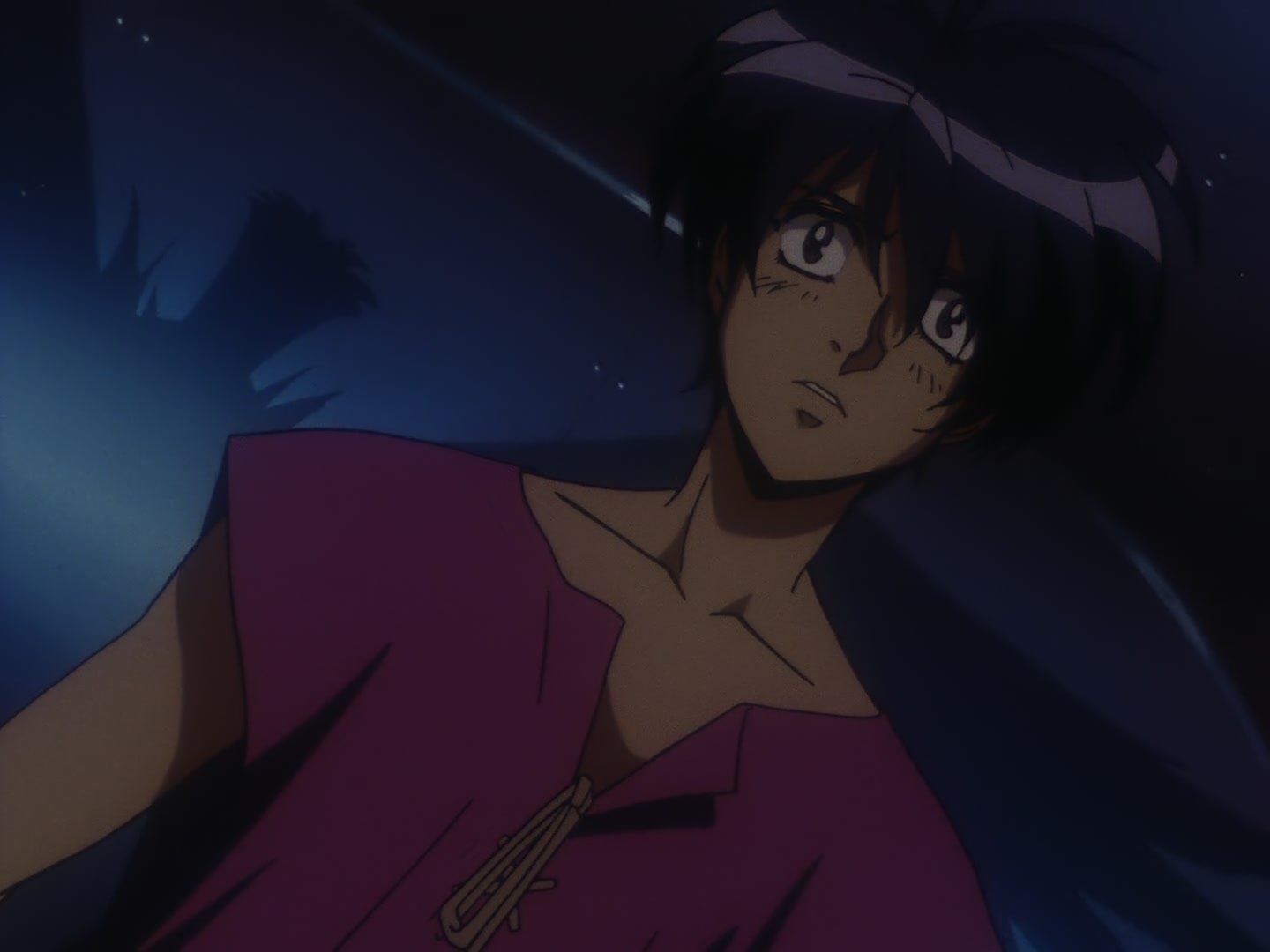
from episode 5, Seal of the Brothers, one of the episodes boarded by assistant director shinichiro watanabe of Cowboy Bebop fame.
the problem is, like JJBA, it takes time to show someone what makes escaflowne’s deft feats of emotional storytelling stand out. even though everyone seems to agree that the soundtrack is beast mode, for some reason it’s harder to believe that escaflowne, The Thing Escaflowne Is/Seems To Be, deserves that soundtrack, which, like the series itself, required close study and travel to complete. shoji kawamori's direct inspiration from nepal, tibet, the himalayas, the relevancy of this within the art or symbols, and references to a non-western canon, is too easily dismissed, as if escaflowne doesn't deserve that consideration, or deserverendering by an all-star team of artists. doesn't deserve its film, which is a matured approach to a select few concepts from the series. deserves its memory. as if this is a waste, all of it arbitrary, purposeless. and not only that— if the above is taken as fact, then it's also fact that you, the viewer, also don’t deserve to witness this great joint effort, this great coalescing of ideas. and so, you're encouraged not to think about it at all.
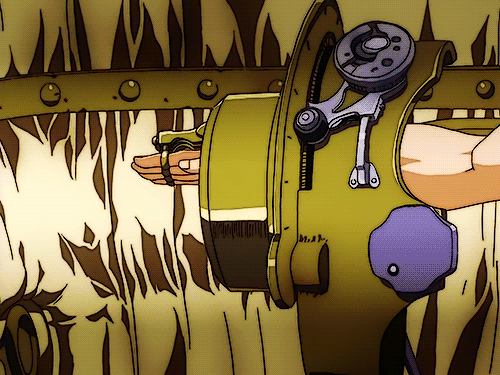
its staying power isn’t immediately recognisable in still images. among things i’ll mention further down, lack of time/patience and preference for secondhand experience is a real problem which affects art as much as anything. the art may not appeal to everyone, but with how much art i hope fellow artists (in particular) have been exposed to, i need them to come to grips with the possibility that outright aversion to style might be a juvenile bias relative to where they’re at in their creative career. if you’re a professional artist, and the most technically skilled you’ve ever been, and you can’t recognise or value work different from your own, or see what's bared through amateur work, there is a gaping deficiency in your skillset. unwillingness to engage in “low culture” is as tedious to me as unwillingness to engage unironically, or in like… theory or whatever.
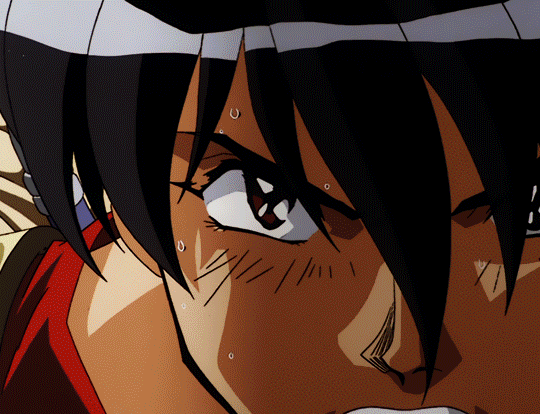
the heft, perspective, slow speed, destruction of the mecha also makes for a more physical experience, grounded in their own reality. look at that incredible starting angle from beneath escaflowne! i think that type of artistic direction is taken for granted and not because it's normal, but because it isn't.
like great people*, great works of art are often reviled in their time, absolved sometime in the future. produced by the disenfranchised, pushed to the margins, then eventually smoothed out and rebranded, defanged, resold. okay, obviously, i'm not roping Escaflowne into this; a huge work produced by a studio. but i am including it as a strange piece of media that attempted to accomplish multiple things at once (and, in its home country, didn't hit, and, abroad, did better, but was somewhat misrepresented, and continued to be examined long after the fact) but primarily, it's relevant because i feel good being honest about its impact on me, on my independent, marginalised work.
i don't think "liking something" is remarkable on its own. i don't think "oh yeah... did you know i like ANIME???? and... YAOI? does that freak you out?" is edgy or interesting in 2024, but the public is still captivated when cis people, and cis men, mostly, mention an ont interest in it. and that is fun, lol! but for everyone else it's like, yeah whatever, you like anime. of course, i can only speak as someone historically devalued for this.
it's discussing art and examining ones own responses to that art is i think essential for the spirit and those around you. it’s infectious and influential. it’s actually, like, good and important to be self-serious sometimes. there’s a totally insufferable cowardice in refraining from emotional indulgence, from being brought to your knees and crawling forward toward being able to bring that to someone else. not just making “weird art,” whatever that means relative to whatever era, but feeling what moves you. what's weird without motive? this hedonism in art has to come from a place of unbridled honesty, gratuitous indulgence of instinct and reaction. or so i think. regardless of rightness or wrongness, i think it's good to think about it. "deep" or "contemplative" doesn't have to mean "ponderous." i would say every arc of JJBA is contemplative, reflective upon the previous and actively curious about its own future. love yourself enough to want. admitting your influences. admitting what you wish you could do and currently can't. be daring enough to aspire. and just try. be curious enough to discover. truly, what would you make if no one was watching? if there's no time in your life where no one is watching, do you think that influences what you make? what scares you? why? now how do we stop being scared?
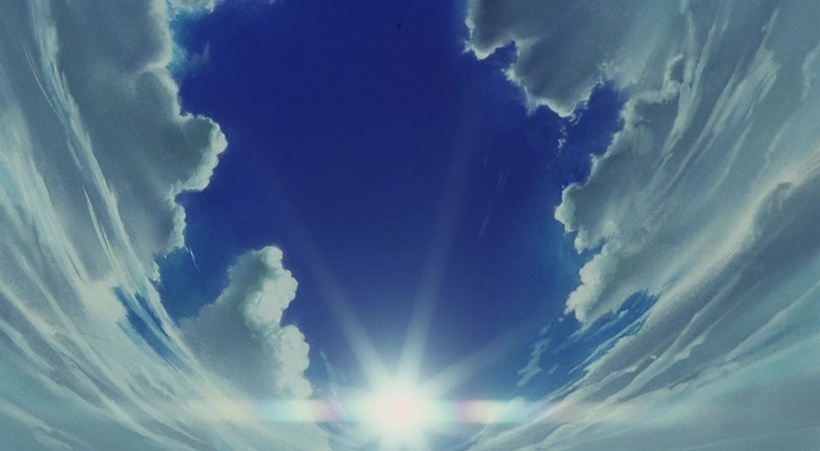
and i really think even if you don’t like the art of Escaflowne, there are other aspects that can be appreciated on their own merit. i’m interested in film enough that i can point out all the camera work, shifting of perspective, cuts that make the series uniquely filmic, utilising techniques we associate with live action. (the timing/pacing in escaflowne is one of the best things about it, and since making comics is controlling the flow of time, i'd think that would be interesting for some.) it accomplishes this in a way that distinguishes it from other TV anime. (we don't have to expect it from anime because anime can tell a story through other means.) if you don’t like the plot, i still think the mechanisms of the plot expanding are executed with clever creativity. but it’s the same problem: this requires time, and this comes through in motion. the visuals of the series are informed, altered, recontextualised, by the sound and the silence. someone has to be willing to see it, not past it.
escaflowne is a huge exercise in inference.
it rewards for that reason— it rewards care and attention. the series employs strong acting (with all due respect, any dub comes up short in comparison to the skill of the original japanese cast) as well as crucial microexpressions. so it does not reward multitasking and looking at your phone. if the Escaflowne team made any fatal error, it's that they created a piece of art which one has to actually look at to understand.
because it doesn’t beat you over the head with exposition, there’s room for more nuanced storytelling that in the type of story people expect it to tell, would be unnecessary. but it is necessary. i think that's the enduring magic of it, what it demands from the viewer as a participant in the experience. it’s not passive. or, its seeming passivity, and allowance for passivity, as a story/experience is a deception. i have full faith in the writer and team that the metaphors, symbols, parallels are exactly as intentional and significant as they are, because they are what sells the meaning of the story— but even at the time it stood apart for the same reason it’s difficult to get people into it now, which is that we’ve since rapidly moved into such an age of western literalism and graceless lore and total lack of respect for art as craft, as work, as language. art as not simply aesthetics, but art as communication. what’s being communicated becomes simpler and done through simpler language, in as simple and cheap and exploitative a process as possible, and only references the aesthetics of the past to imply history/thought without having to actually think, or say anything, and in turn bury history.
one has to deeply, earnestly want to communicate something. and be willing to work to accomplish it, risks and all. the risks are necessary. failure is a teacher, and in that way, failure ceases to exist. and i don’t say this stuff because i think it’s easy. the work is hard, making time is hard, and not all forms of work are accessible/possible for all people, communication comes in many forms, and it’s not only work to communicate, it’s also work to learn how to become fluent/familiar with someone else’s communication style/method. but that process fascinates me. it’s a challenge. i’m not always up for it. but i can’t help wanting for connection. i value the time i allow myself to sit inside something for however long it takes to process. if i dislike something, i want to understand my reaction and see if i can understand the method and motivation in which it’s told, and if that clarifies something. i’m always hungry to understand.
art is also a vehicle of fearlessness for me— the craft, the labour, if nothing else, makes me closer, more familiar, with the world, including the people i admire. sentiments like this mean so little to me. i can handle being rejected, but until that happens, i don’t preemptively imagine my inspirations/aspirations in defensive RPF like this and if i were actually treated poorly by someone i admire, i wouldn’t admire them, because i don’t admire treating people poorly (this is with the assumption that i'm not being a total asshole.) i can handle being disappointed. i've been disappointed by people i admire countless times, and each time, i get to decide what to do about it, and where to go from there. if it means anything at all. surely i must make do. like, my guys are not my dad. i've already rejected my father and maybe that shifts my position, haha. i don't need a president i can sit down and have a beer with! but i also don’t approach art, or artists, even my favourites, with the goal of permission-seeking. and i have faith that, for people who are interested in art-as-practise, it can bridge some distances.
bearing in mind how much physical and mental effort it takes to create art, i am completely comfortable meeting/respecting it when it’s shown to me, and, completely comfortable ignoring something disingenuous and soulless. a result of defunding/devaluing is that the nature of post-prodction and what's included within that has changed such that the presence of intentionallty in animation and film just isn't the same priority, exemplified most egregiously by the capitalist goal of razing art-as-labour via AI. considering all of this, escaflowne does not need a remake. no matter how much more “content” you want. look at the anime remakes of recent years, they’re straight up horrific. you can't tell me the Berserk show or the BASTARD!!! remake is worth my time. i don't even want to see the anime version of the fight between denji and aki in Chainsaw Man. i don't need it. i reread those chapters over and over again, the emotions i feel (total devastation) are the same. they nourish and sustain me. the source of your nostalgia already exists— it doesn't require a hollow reanimation to remind you what it means to you. at some point things end. you can never go back, but you can visit.
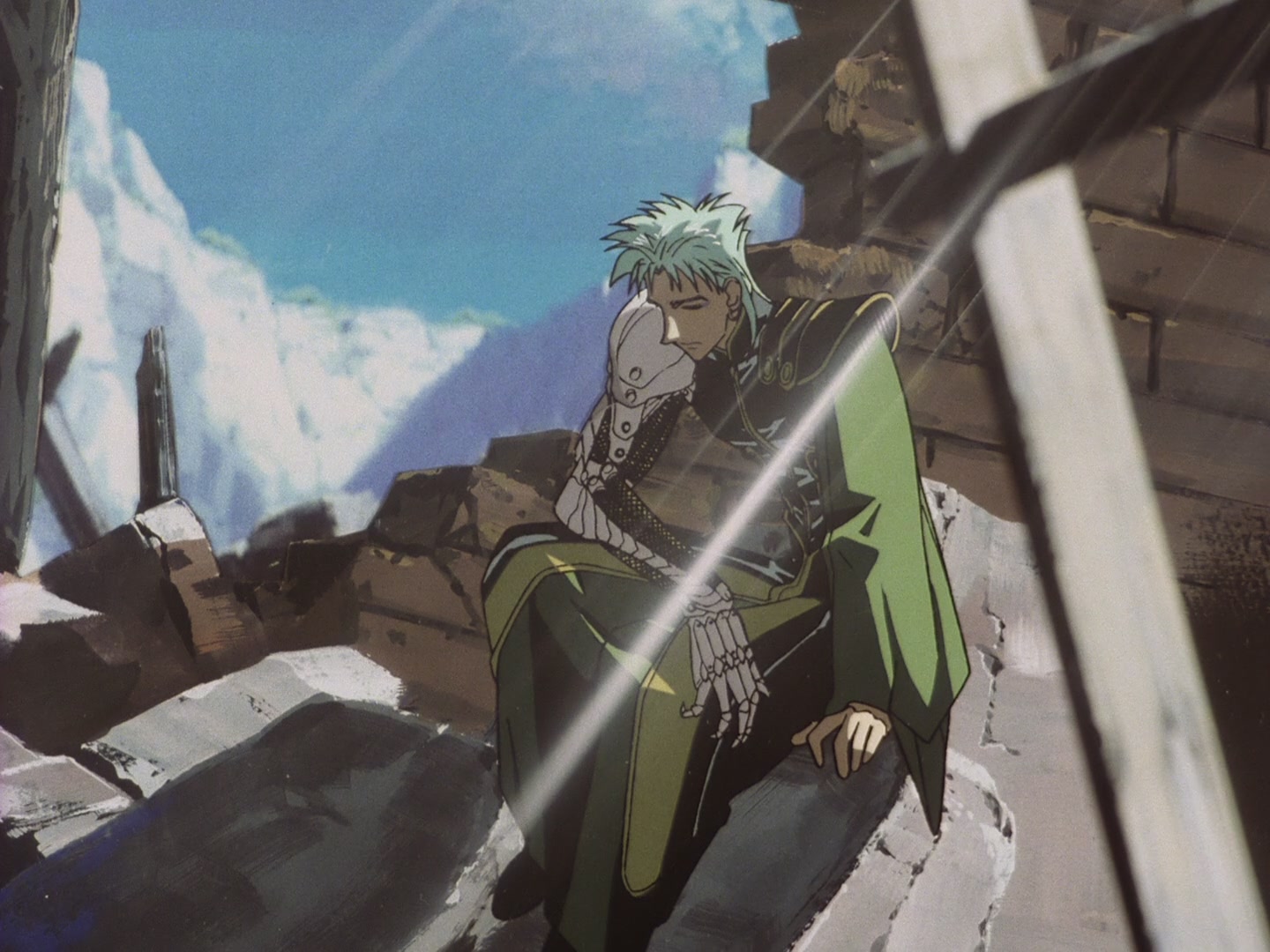
i love folken fanel more than maybe any other character in any other series. i don't know how they put him together. i just don't get it. one of Sunrise studio's major works, Cowboy Bebop, is a phenomenal series, a triumph of the form, a smart and provocative set of interwoven stories. it had a huge impact on myself and zillions of other people. there are episodes i remember and think about on the regular, from start to finish. and i genuinely believe Escaflowne is more emotionally complex than Cowboy Bebop. folken, his story, his behaviour, his rendering, his function, is a prime example of the show's complexity. he is consistent in demeanour and goal, but he's also sorely mistaken. he knows his role and he knows the future. there are lots of little microexpressions and sustained beats or quick cuts to sell a feeling, and a huge number of them belong to him. his small shifts in mood, the lying through his teeth (often literally; he's shown speaking softly, teeth visibly and audibly clenched) slick, disarming straightforwardness. plus the camera loves him. i think of all the characters, the way he's stylised reinforces the stylisation overall. like he is unequivocally meant to look exactly like this, and boy did the animators treat him kindly every time he's on screen. not to say no one else looks great, but folken is structurally sound across all facets of his design. he's solid, but concealed. his desperation to be understood by the person he loves most, his younger brother, while unable to be physically present with him, bruises me greatly. i have and will write more about him some other time.
in a similar vein, i also don’t need or yearn for Escaflowne or any of my favourite things to be gay or trans just because i am. i think it goes without saying that the world benefits from having more queer work in it, independent, amateur, outsider. but with work that already exists and which had no formal input from queer people, i adjust my expectations. my identity comes from myself, and the experience of being me is expressed in the art/stories i make. absent of my response to it, the media i enjoy is as representative of myself/morals/ethics/actions as a blank sheet of paper. i don’t cultivate my interests based on what i think will best represent me As Gay. i don’t cultivate my interests based on the checkboxes of a scene i’m trying to fit into. transness is inextricable from me, and has shaped my life. the things that look and feel like transness to me do not to other people. this doesn’t make it lesser.
Folken Fanel's narrative, along similar lines as Luke Moran from Amongst Women or Holden Caulfield of Catcher in the Rye fame, or even Cú Chulainn, could effortlessly be explored as a transsexual metaphor even if just because it mirrors what in my own life feels intrinsic, inseparable from transness, the only way i’ve experienced it. but it’s my own art that i hope speaks loudest to the nature and quality of my soul. you should demand better. but knowing when to demand that of yourself, not others, is important and affirming. shipping etc. is your own imagination, so you’ve already accomplished part of the work of creation. not all, but some! it feels too easy and unfair to insist the series would be “better” if it were less heterosexual, as if profound pain and romance can only affect you if it’s a 1:1 recreation of yourself. you are always bringing yourself to what you love. and you can aspire to it. you can be shaped by it. you can be dissatisfied and seek resolution, but eventually you’re going to hit a wall where there are no more answers, because they were never intended to be answered in the first place. what’s your next move?
i like thinking about art and i like making it. i have insane, baseless faith in my motivations and, if not my execution, then my interest in learning how to execute them. it isn’t enough for me to have my interests, ideas, inspirations floating around in the realm of the hypothetical. i demand more. at the same time, i should settle for less, and i’m making a serious effort to learn how so i can avoid burning out (if that’s even possible when capitalism is designed to be punitive and disabling.) but i also know i won’t be satisfied by languishing. art has been the singular constant in my shitty, chaotic life— by making, i’m also making myself more real.
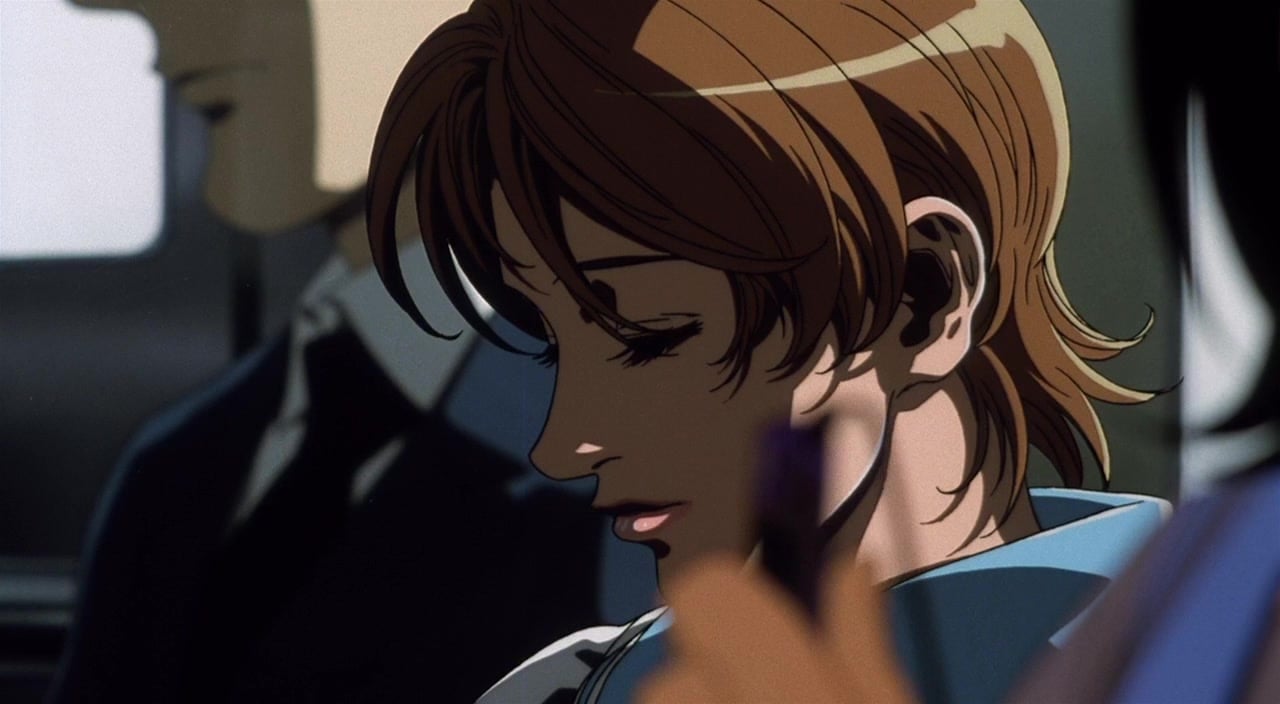
if someone tells you the Escaflowne film is bad, don't believe their lies. it is a privilege to see something this sumptuous, an adaptation seeking to play and resolve without being in any way a remake or extension of the story— at least not in the style of the current era, full of overly-literal dead horse beaten raw sequels and prequels. it doesn't nullify the original; that's not its purpose. it's thoughtful and sombre. it's mostly self-contained, but familiarity with the series makes it all the richer. they're in coherent and comprehensible conversational loop with one another, which is fitting, for a story that is told in mirrors, parallels, foils. look at that lighting! it's like that the whole way through. luscious. (there are 2 drama CDs too which expand the story further if you need it. they're full of shit i love, personally.)
i’ll always be able to laugh at Ace Attorney as much as i’m able to be held in the cinematic grip of, in particular, the drama of the last case of the 3rd game. drama which cannot be conveyed in screenshots, because you can only feel it when you're inside of it. and i’ll always be able to think about eli snake hanging out with his 3 numbnut dads and whipping machine parts off of mother base and zipping around in heelys til the dog attacks him and he eats shit. as well as thinking about how beautiful it is that david snake fulfills the role/will of the boss in a way of which the same dad is incapable. i’m invited to play and also to contemplate the critique of the american war machine. and jeeze, i’m not saying this because i think this type of play is a unique ability, lol. this is very simple, this is the baseline.
what i AM saying is… what a treat it is to love escaflowne. to enjoy such well-considered art, indulging in the wholeness of the vision. it can’t be overstated just how much effort went into its creation— to have not only a series but a chance to revisit in the form of (possibly? definitely?) one of the most lavish anime films ever made. even my ample critiques of the work come from a place of trying to meet and respect the art from its position, in its own internal context, its place in the world, and in my life. i made a really good comic this year that i think synthesised what i've long valued and strived for in and outside of my work. if i’m a good artist/writer today, it’s because i saw escaflowne when i was 12.
and that’s why i wield the knife. lmao
“During the lifetime of great revolutionaries, the oppressing classes constantly hounded them, received their theories with the most savage malice, the most furious hatred and the most unscrupulous campaigns of lies and slander. After their death, attempts are made to convert them into harmless icons, to canonize them, so to say, and to hallow their names to a certain extent for the “consolation” of the oppressed classes and with the object of duping the latter, while at the same time robbing the revolutionary theory of its substance, blunting its revolutionary edge and vulgarizing it.”
- lenin